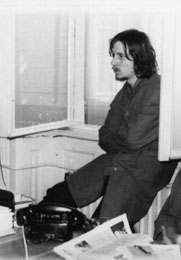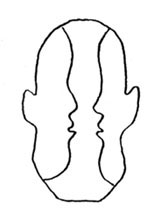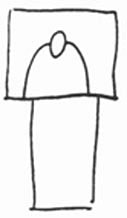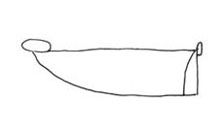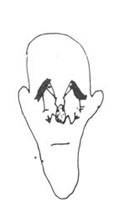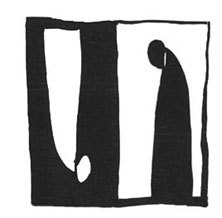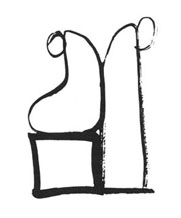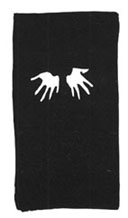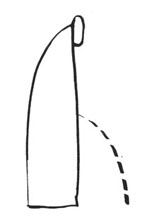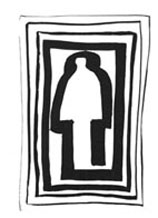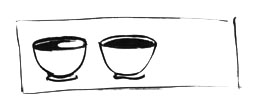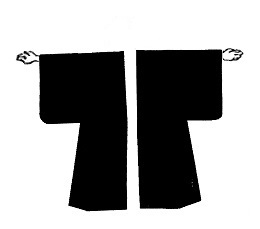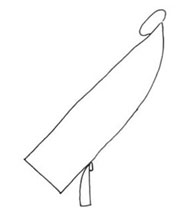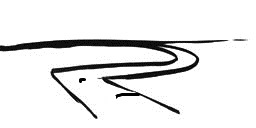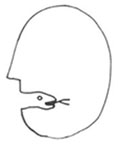|
|
Nan-ch'üan also taught Lu Hsüan, a lay disciple who was the Governor of Hsüan-chou. One day Lu Hsüan said to Master Nan-ch'üan, "A man raised a goose in a bottle. As the goose grew bigger, the man realized that he could not get it out of the bottle without killing it. He did not want to break the bottle or kill the goose: What would you do, Master?" Nan-ch'üan immediately cried out, "Oh! Governor!" "Yes, Master?" Then Nan-ch'üan said, "It is out!" At this the Governor was awakened.
Translated by Chang Chung-yuan
|
|
|
Every day Master Ruiyan used to call to himself, "Master!" and would answer, "Yes!"
Again, he would call, "Thoroughly awake! Thoroughly awake!" and he would answer, "Yes! Yes!"
"Don't be deceived by others, any day or any time."
"No! No!"
Translated by
Yamada Kōun
|
|
|
A monk asked: "What is it when all possibilities are gone?'' Master Yün-men said: "Pick up the Buddha Hall for me, and then I will discuss it with you." The monk: "What has this to do with the Buddha Hall?" The Master cried out, "You liar!"
Translated by Chang Chung-yuan
|
|
|
Once, when our Master had just dismissed the first of the daily assemblies at the K‘ai Yuan Monastery near Hung Chou, I happened to enter its precincts. Presently I noticed a wall-painting and, by questioning the monk in charge of the monastery's administration, learnt that it portrayed a certain famous monk.
‘Indeed?' I said. ‘Yes, I can see his likeness before me, but where is the man himself?' My question was received in silence.
So I remarked: ‘But surely there ARE Zen monks here in this temple, aren't there?'
‘Yes,' replied the monastery administrator, ‘THERE IS ONE.
After that, I requested an audience with the Master and repeated to him my recent conversation.
‘P‘ei Hsiu!' cried the Master.
‘Sir!' I answered respectfully.
‘Where are YOU? '
Realizing that no reply was possible to such a question, I hastened to ask our Master to re-enter the hall and continue his sermon.
Translated by John Blofeld
|
|
|
Huizhong was asleep when Danxia visited him.
- Is your master home? Danxia asked his novice.
- At home, but no one is welcome.
- You recognized the situation immediately - Danxia praised him.
- My master would not accept even the Buddha - the monk said.
- You really are a good disciple! Your master can be proud of you! - Danxia praised again, then set off.
When Huizhong woke up, Danyuan - the novice - told the master how he was treating the visitor.
But the master beat him and drove him out of the monastery.
|
|
|
Once when Master Dongshan was washing his bowls with another monk, they both saw two birds contending over a frog. The monk asked, “Why does it have to come to this?”
The master said, “It's only for your benefit, venerable.”
Translated by John C. H. Wu
|
|
|
Once, when a monk was visiting Fayan, he pointed to a blind. Two monks went to roll it up. Fayan said, “One gain, one loss.”
Translated by Andy Ferguson
|
|
|
Zhaozhou went to Baoshou Yanzhao’s place. Baoshou saw him coming and sat on the meditation platform facing away from him. Zhaozhou laid out his meditation mat and bowed toward Baoshou. Baoshou then got down from the meditation platform. Zhaozhou went out.
Translated by Andy Ferguson
|
|
|
A novice once said to Zhaozhou, “I am only newly admitted into this monastery, and I beseech Your Reverence to teach and guide me.” The master asked, “Have you taken your breakfast?” “Yes, master, I have.” “Go wash your bowl,” said the master. At these words, the novice experienced an instantaneous enlightenment.
Translated by John C. H. Wu
|
|
|
Someone asked, "Being on the verge, that point of absolute immediacy—what is that like?" Zhaozhou said, "Pissing is a small thing to do, but I have to do it myself."
Translated by Yoel Hoffmann
|
|
|
Once Master Yunmen went up to the Teaching Hall for a talk and said, “The world is so wide and vast; why do we put on the seven-strip robe at the sound of the bell?”
Translated by Chang Chung-yuan
|
|
|
One day, Yantou was talking with Xuefeng and Qinshan. Xuefeng suddenly pointed at a basin of water.
Qinshan said, “When the water is clear the moon comes out.”
Xuefeng said, “When the water is clear the moon does not come out.”
Yantou kicked over the basin and walked away.
Translated by Andy Ferguson
|
|
|
A monk asked
Changqing Huileng, “How can we attain to a state without doubt?”
Changqing stretched out his arms.
Translated by R. H. Blyth
|
|
|
One day, while Nanquan was living in a little hut in the mountains, a strange monk visited him just as he was preparing to go out to work in the fields. Nanquan welcomed him, saying, “Please make yourself at home. Cook anything you'd like for your lunch, then bring some of the leftover food to me. The path outside leads directly to my work place.”
Nanquan worked hard until the evening but the monk never came, so he returned home very hungry. The stranger had cooked and enjoyed a good meal by himself, then thrown out the leftovers and broken the cooking pot and all the utensils. He discovered the monk sleeping peacefully in the empty hut, and as soon as Nanquan lay down to go to sleep himself, the monk got up and left without a word.
Years later Nanquan told his disciples this story, saying, “He was such a good monk. I miss him even now.”
|
|
|
Nanquan was once on the mountain, working. A monastic came by and asked him, “Which is the Way that leads to Mt. Nanquan?”
Nanquan raised his sickle and said, “I bought this sickle for thirty pence.” The monastic said, “I am not asking about the sickle you bought for thirty pence. Which is the Way that leads to Mt. Nanquan?”
Nanquan said, “It feels good when I use it.”
Translated by John C. H. Wu
|
|
|
Once, Xitang, Baizhang, and Nanquan accompanied the Patriarch Mazu to watch the moon. The Patriarch asked, “What shall we do now?” Xitang said, “We should make offerings.” Baizhang said, “It is best to practice.” Nanquan shook his sleeves and went away. The Patriarch said, “The scriptures enter the treasury (zang), meditation returns to the sea (hai). It is Puyuan [i.e., Nanquan] alone who goes beyond all things.”
|
